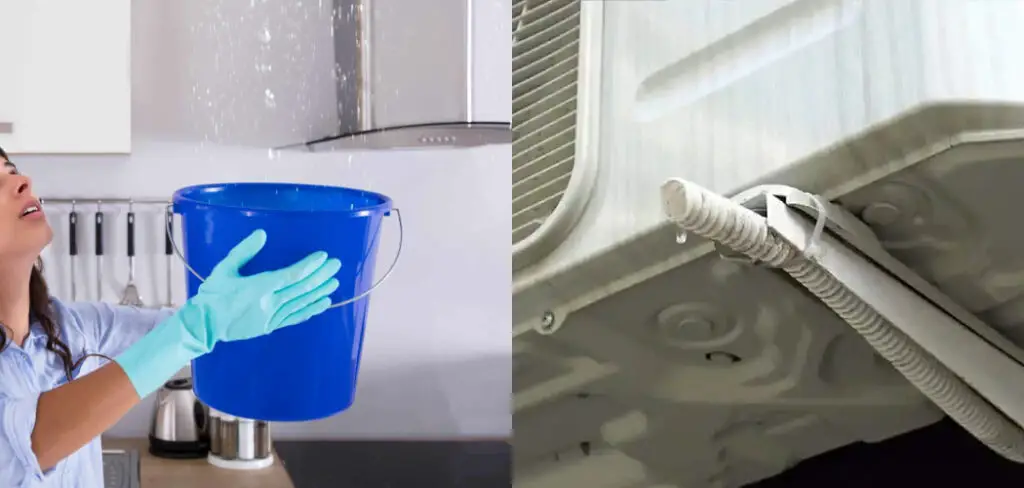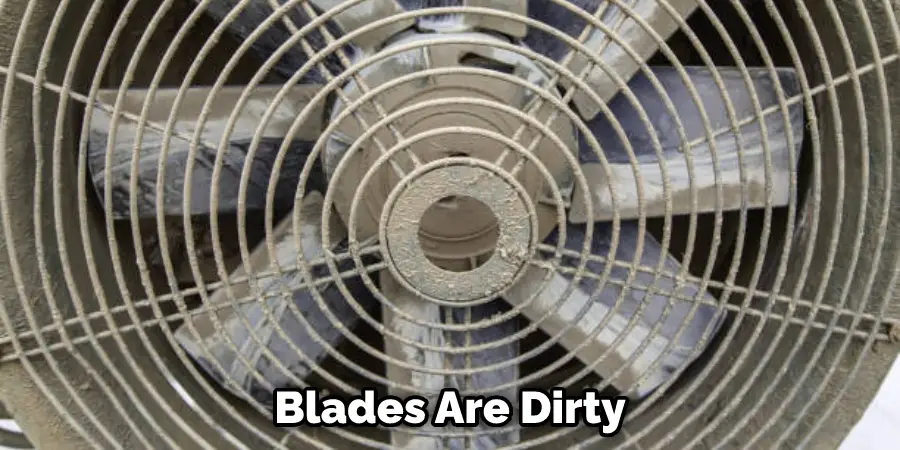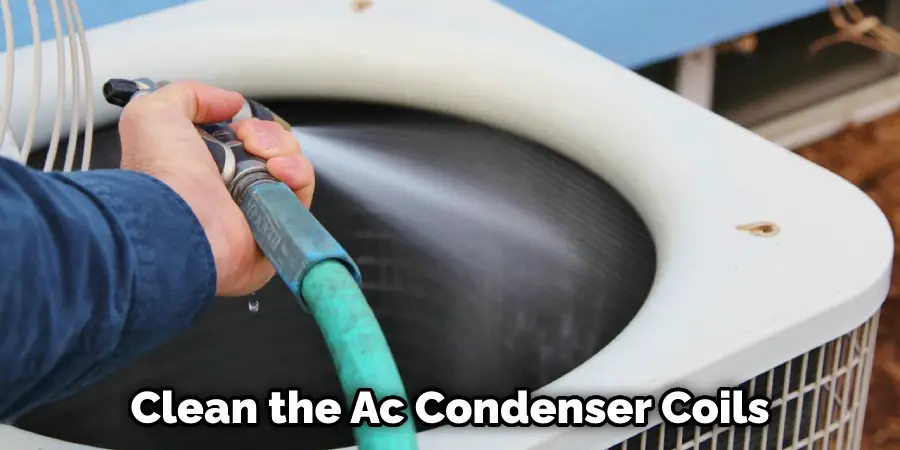When the weather is warm and humid, there’s nothing quite as nice as coming home to a cool and air-conditioned house. But if your air conditioner is making a dripping noise, it can quickly ruin the relaxation you were hoping for. It’s that annoying noise that seems to come from nowhere and never stops.

If you’re like me, you’ve tried everything to stop it – from stuffing towels in the vents to using a noise machine to drown out the sound. But nothing seems to work. So what can you do? Just hold yourself for the best way to solve this dripping noise problem from air conditioner.
Keep reading for my tips on how to stop dripping noise from air conditioner once and for all!
11 Most Common Reasons Behind Dripping Noise From Air Conditioner
There are many reasons that can cause your air conditioner to drip water and make noise. Some common causes include:
1. A Clogged Air Filter
A clogged air filter is one of the most common reasons behind an air conditioner making noise. When your air conditioner’s air filter is clogged, it has to work harder to circulate air, which can cause the unit to make more noise than usual. To fix this, simply replace your air filter with a new one.
2. A Dirty Condenser Coil
Another common reason for an air conditioner making noise is a dirty condenser coil. When your condenser coil gets dirty, it can’t dissipate heat as effectively, which causes the unit to work harder and make more noise. To clean your condenser coil, simply remove it and wash it with soap and water.
3. A Refrigerant Leak
If your air conditioner is leaking refrigerant, it can also make noise. Refrigerant leaks cause the unit to work harder to cool your home, which can lead to more noise. To fix this problem, you’ll need to have the leak repaired by a certified technician.
4. Loose Parts

If any of the parts in your air conditioner are loose, it can also cause noise. The most common culprit is the fan blade, which can become unbalanced and start to wobble. This can create a knocking or rattling noise. Other loose parts can also create noise, so it’s important to have a certified technician check your unit and tighten any loose parts.
5. Poorly Insulated Ductwork
If the ductwork in your home is poorly insulated, it can cause noise when the air conditioner is running. The insulation helps to absorb sound, so if it’s not properly installed, the air conditioner can be quite noisy. You’ll need to have a professional insulate the ductwork properly to reduce the noise.
6. Vibrating Pipes
If the pipes that are connected to your air conditioner are vibrating, it can cause a lot of noise. The vibrations will travel through the entire system and make a lot of noise. You can fix this problem by securing the pipes, so they don’t vibrate. You can use pipe clamps or tape to secure the pipes in place.
7. Worn Out Bearings
The bearings in your air conditioner’s fan can become worn out over time. When this happens, the fan will make a lot of noise as it tries to spin. You’ll need to replace the bearings in order to stop the noise.
8. Dirty Fan Blades
If your air conditioner’s fan blades are dirty, they won’t be able to spin as smoothly as they should. This can cause a lot of noise. Cleaning the fan blades is usually a pretty easy fix. You have to be careful when doing this, though, since the blades are sharp.

9. Worn Bearings
Another common cause of noisy air conditioners is worn bearings. The bearings help the fan blades spin smoothly. When they’re worn out, they can cause a lot of noise. Replacing the bearings is usually pretty easy and isn’t too expensive.
10. Loose Hardware
Another common cause of noise from your air conditioner is loose hardware. Over time, screws and bolts can become loose, which will cause the unit to vibrate and make noise. Inspect your unit regularly and tighten any loose hardware. You may also want to consider replacing any worn-out or damaged parts.
11. Incorrect Installation
If your air conditioner is not installed correctly, it can also cause noise problems. Make sure that all of the bolts are tight and that the unit is level. If the air conditioner is not level, it will vibrate and make a noise.
9 Best Ways on How to Stop Dripping Noise From Air Conditioner
1. Clean the Ac Condenser Coils:
One of the main reasons for a dripping noise from an air conditioner is dirty condenser coils. The coils are located outside the house, and they tend to accumulate dirt and dust over time. To clean the coils, you will need to turn off the power to the air conditioner and remove the outer cover. Once you have access to the coils, use a soft brush or cloth to remove the dirt and dust. You can also use a garden hose to rinse the coils off.

2. Replace the Air Filter:
A dirty air filter can also cause the air conditioner to make a dripping noise. The air filter is located inside the house, usually near the return air duct or in the air handler. To replace the air filter, simply remove the old filter and insert a new one.
3. Remove Debris from the Drain Line:
Another common reason for an air conditioner to make a dripping noise is debris in the drain line. The drain line is located outside the house, and it can become clogged with leaves, dirt, and other debris. To clear the drain line, you will need to turn off the power to the air conditioner and remove the outer cover. Once you have access to the drain line, use a garden hose to flush out the debris.
4. Check for Leaks:
Another potential cause of a dripping noise from an air conditioner is a leak. If there is a leak in the system, the refrigerant will escape and cause the unit to work harder to cool the space. This can lead to increased noise as the unit struggles to maintain proper operation.
To check for leaks, first, make sure that all of the connections are secure. If there are any loose fittings, tighten them up. Next, check the tubing for any cracks or holes. If you find any damage, it will need to be repaired or replaced.
5. Clean the Unit:
Over time, dirt and debris can build up on the air conditioner unit. This can cause the unit to work harder than it needs to and can also cause the unit to make dripping noises. Cleaning the unit on a regular basis can help to prevent this problem.
6. Inspect the Unit:
Another possible cause of dripping noise from your air conditioner is a problem with the unit itself. Inspect the unit for any cracks or damage that could be causing the noise. If you find any damage, you will need to have the unit repaired or replaced. Make sure you have taken proper measurements before you purchase a new unit so that you get one that fits properly.

7. Check the Drainage Line:
It’s possible that the dripping noise is coming from the air conditioner’s drainage line. If the line is clogged, water can back up and cause a drip. Check the line to see if it’s clogged, and if so, clear it out. But you have to be careful- the line may be hot, so use gloves or a cloth to protect your hands.
8. Tighten up Loose Parts:
Another common cause of that pesky dripping noise is loose parts. Over time, certain parts of your air conditioner can become loose, which can cause the unit to vibrate and produce that telltale dripping noise. If you hear the noise coming from a specific area, simply tighten up any loose screws or bolts. This should take care of the problem quickly and easily.
9. Check the Condensate Line:
The condensate line is responsible for carrying away any water that collects in your air conditioner. If this line becomes clogged, it can cause water to back up and drip out of your unit. To clean the condensate line, start by disconnecting it from the main drain line. Next, use a wet/dry vac to remove any debris that may be clogging the line. Finally, reconnect the line and turn on your air conditioner to see if the dripping noise has stopped.
Conclusion
No one likes the sound of a dripping faucet, but did you know that a dripping air conditioner can be just as annoying – and potentially damaging? If your AC unit is making this telltale drip noise, it’s important to take action right away to stop it.
So, there you have it – a few simple tips on how to stop dripping noise from air conditioner. While it may seem like a small problem, dripping noises can be quite annoying, so hopefully, these tips will help silence the sound and give you some peace and quiet.
